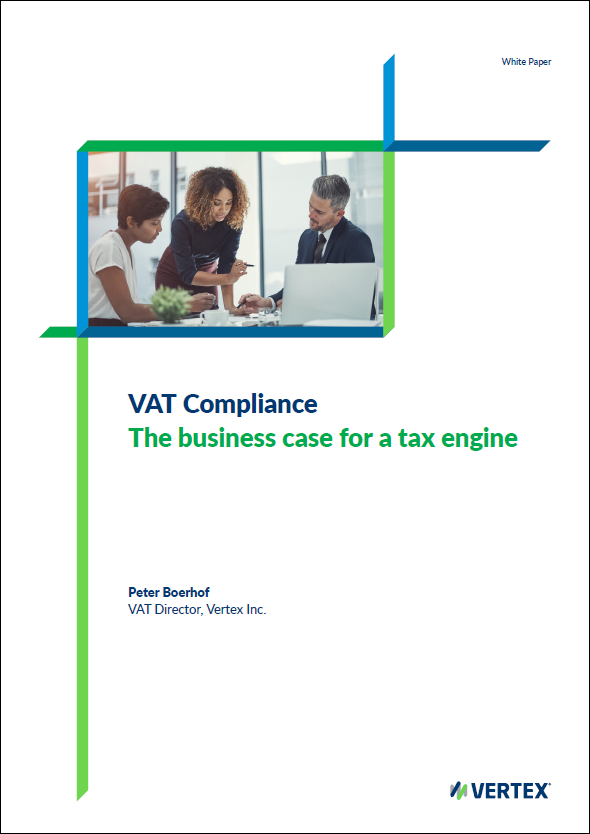
VAT Compliance: The business case for a tax engine

One of the challenges in VAT is that the end-to-end process is scattered over various departments in your organization, starting with your master data team through procurement and sales, ending with accounts payable and finance. Every department has its responsibilities contributing to your company’s overall VAT position, but the question is if somebody owns the end-to-end VAT process. Even if not formally laid down in a Responsibility Matrix, most probably, the tax or VAT manager will be held accountable if something goes seriously wrong in the end-to-end VAT process.
The globalization of your company is an argument why you would want a tax engine. As a result, this argument may only be valid to a certain extent for your specific situation. This refers to your global ERP and systems landscape, your IT and Finance departments’ organization, the appetite for outsourcing, and your VAT knowledge structure.
